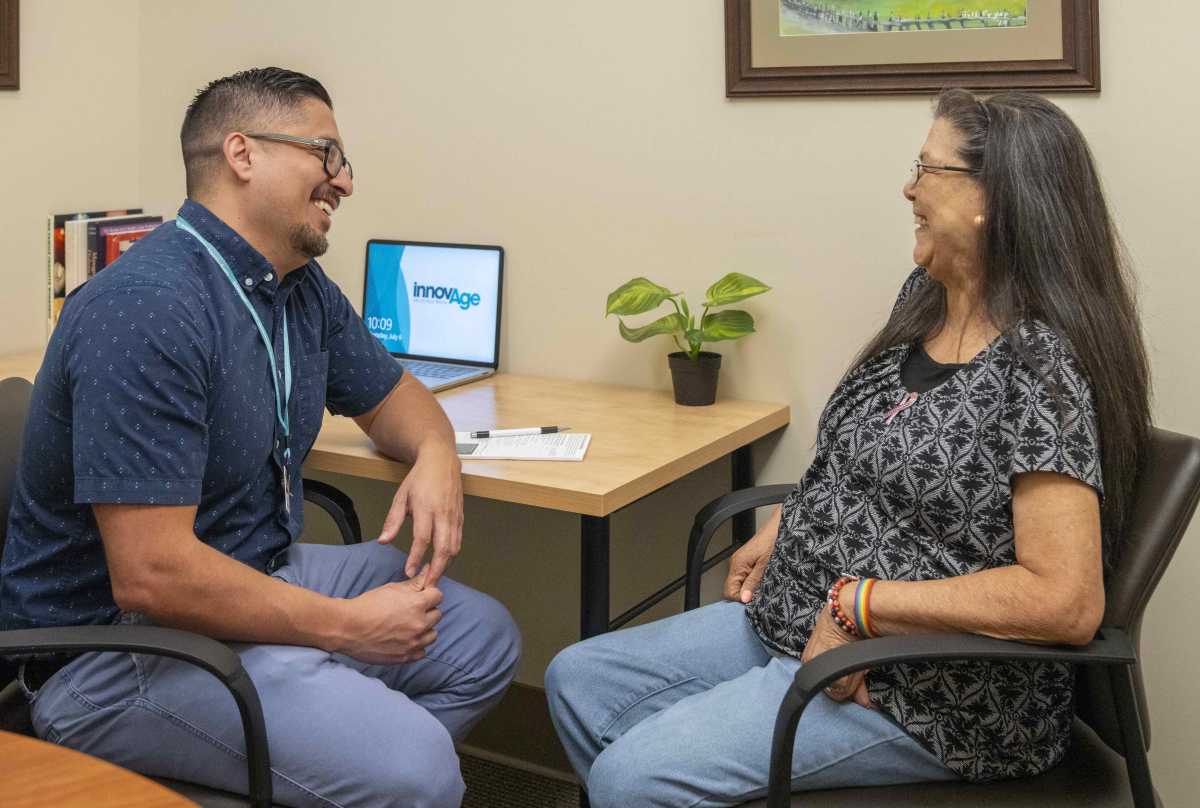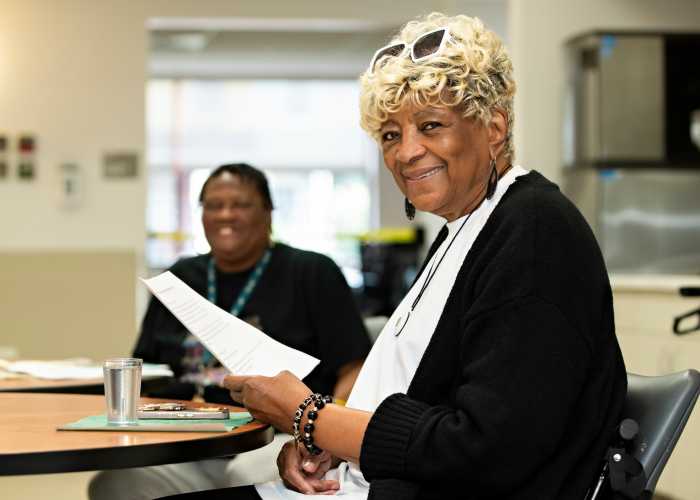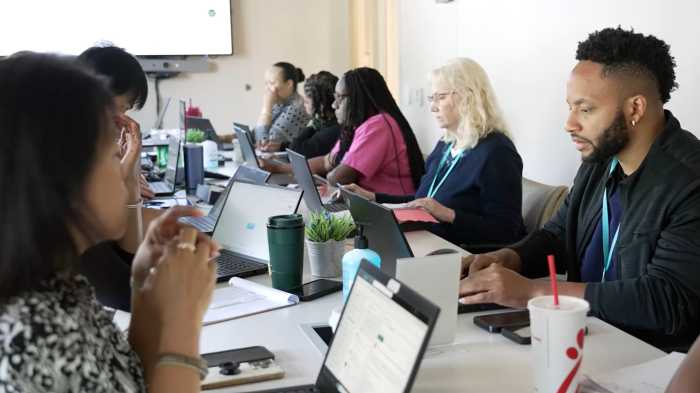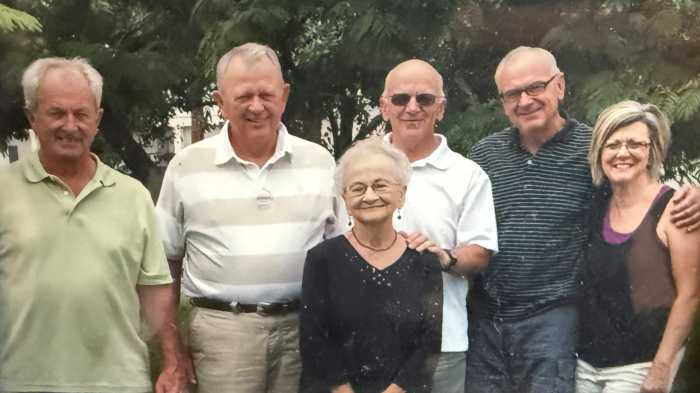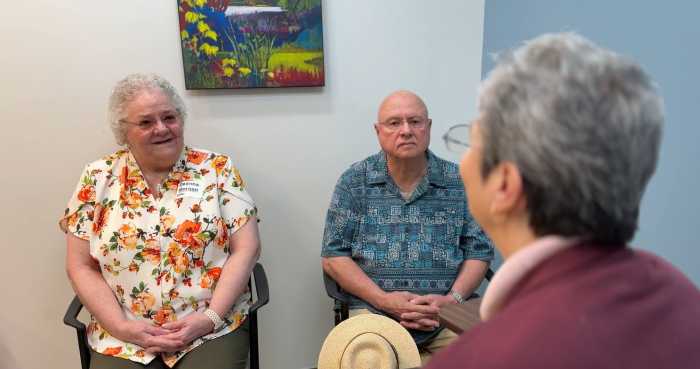InnovAge Pennsylvania’s LIFE program (Living Independence for the Elderly) is dedicated to helping seniors maintain the familiarity of home while pursuing a sense of community, as part of a comprehensive medical, emotional and social support system.
One oft-hidden detail of eldercare is behavioral health—how coping skills, social interactions and abilities to react and interact affect a patient’s overall well-being. Behavioral health issues can be measured, for example, by how habits and lifestyle affect one’s daily living.
With that, InnovAge’s behavioral health specialists leave no stone unturned when it comes to caring for patients, no matter how great or small the issue.
“I like to think of what I do as taking a green and healthy plant and helping it to blossom, to thrive,” says Katya Boryshuk, a behavioral health provider with InnovAge PA LIFE with an eye toward assessment and ongoing psychotherapy services. “It’s never too late to help a flower blossom. Sometimes, that help is as simple as just being there for someone, and listening, or helping them to relax and think clearly.”
Boryshuk takes her time in the assessment of InnovAge participants, how she can help each individual, and what goals they have for their care. Involving each participant in their goals and how they can achieve them – true agency – is an essential part of maintaining dynamic behavioral health.
“Once we agree on goals, frequency and methods, we can move forward with psychotherapy sessions.”
Boryshuk has witnessed many of the program’s participants at InnovAge face issues such as “early trauma, poverty, lack of access to resources… lifelong depression stemming from adverse childhood circumstances.”
To this, Boryshuk’s most significant brand of urgent and lasting care comes down to identifying past trauma (“some participants grow up never realizing they had such trauma”) and focusing on their resiliency.
“So many of our participants have survived horrible circumstances and grew from such trauma,” she says. “I can point to their great strengths and resilience in helping them heal themselves. They never thought of themselves as strong – but they are. I allow them to look at their lives from fresh, different angles. None of this is rushed or hurried. Creating a calm environment and giving each participant the time to see themselves in this new way allows us – allows them – to see more clearly what they would like to see next for their life. If we had a magic wand, where would we be next? How can we take from your daily life so to help your relationship with your children or how can we work on helping you sleep better?”
Identifying and offering attainable options is key to InnovAge’s behavioral health care. “And we always enlist the participant in this problem solving,” says Boryshuk.
Leslie Minna, Vice President of Behavioral Health Services for InnovAge LIFE, compares behavioral health to the foundation of a house that needs strong brick work to fortify each property.
“People often think that behavioral health has to be complex, but the basic foundation – getting exercise, having quiet time, getting together with friends – are essential,” she says. “There’s a foundation that we all have to build as individuals that help support the infrastructure so we can best take care of ourselves.”
Broadly speaking, Minna talks about seeing a loss of autonomy, anxiety and depressions as common issues elders must fight against.
“Any loss of a former self, even someone you were two years ago, is a major issue,” she says. “Perhaps, you can’t take a walk around the block in the same way you once could. You might grieve your former self. Your younger self. With age, peers and friends pass away. That’s an issue. No longer being able to live independently or being separated from family – these are issues.”
InnovAge’s behavioral health stresses the goals of mindfulness, being present and learning coping skills.
“Things such as that, where people can apply to their everyday lives — to self-soothe and self-cope — is crucial to such care,” says Minna. “That’s where a strong framework comes in – in your body and your mind as well as the space where you live.”
Sponsored content produced in partnership with InnovAge



